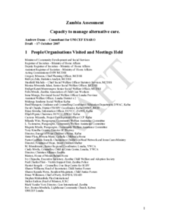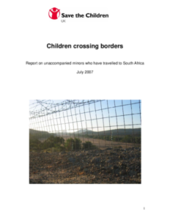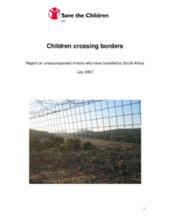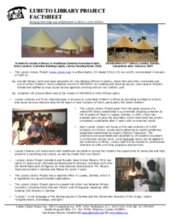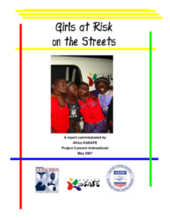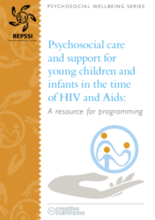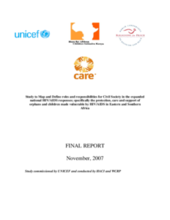Displaying 1471 - 1480 of 1627
Country level evaluation of contributing factors to the establishment of an alternative care system.
The first International Conference on Sexual Abuse of the African Child will be held in Nairobi, Kenya from 24–26 September 2007. The aim of the conference is to advance knowledge regarding the various types of sexual abuse and their complexity in the cultural settings of Africa.
This study aimed to gain insight into the migration experiences of children who cross international borders unaccompanied.
The study aimed to gain insight into the migration experiences of children who cross international borders unaccompanied.
Emerging evidence from Mozambique suggests that children fostered after conflict-induced separation receive love, care and support from local families.
This document is intended to provide concrete advice on how to put the guiding principles common to most child protection actors into practice. Though cultural traditions and customs may require the advice to be adapted to the specific context, the authors believe that the advice provided is grounded in sufficiently broad experience to guide measures that ensure children under five are not separated when this can be avoided, and, if separated, can be reunited with their families as quickly as possible.
The Lubuto Library Project seeks to fill an important gap in services to vulnerable children in Africa by providing a bridge to schools and social services otherwise beyond their reach.
A report that identifies gaps and provides recommendations for protecting and supporting girls living on the streets. It provides models of good practices from Ghana, Kenya and Zimbabwe.
Clear programme guidance on psychosocial support, with a special focus on infants and young children. Excellent explanation of psychosocial support models.
This study commissioned by UNICEF, Hope for African Children Initiative (HACI), and World Conference on Religions and Peace (WCRP) maps and defines roles and responsibilities for Civil Society in the expanded national HIV/AIDS responses. The report pays particular attention to the protection, care and support of orphans and children made vulnerable by HIV and AIDS in Eastern and Southern Africa.

